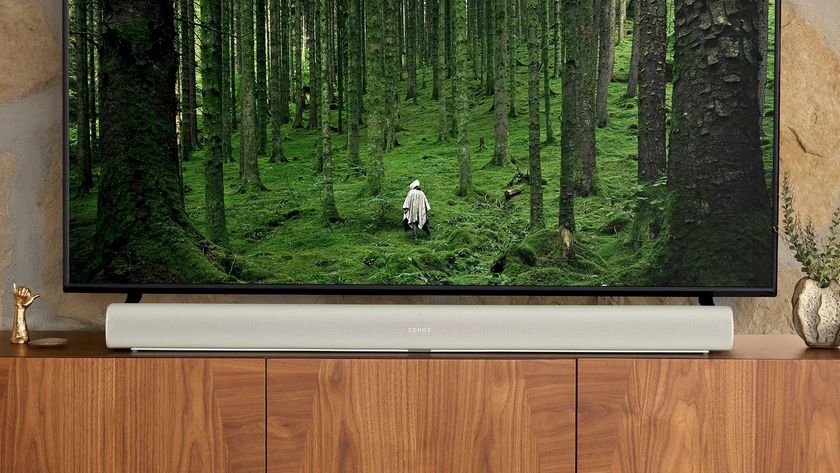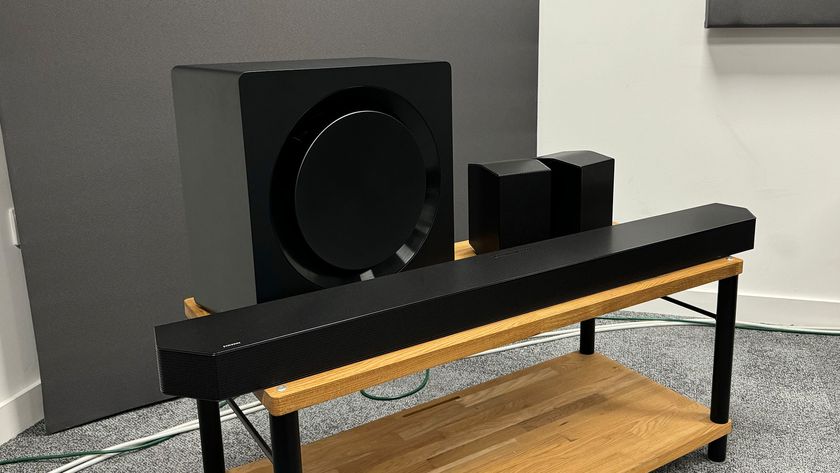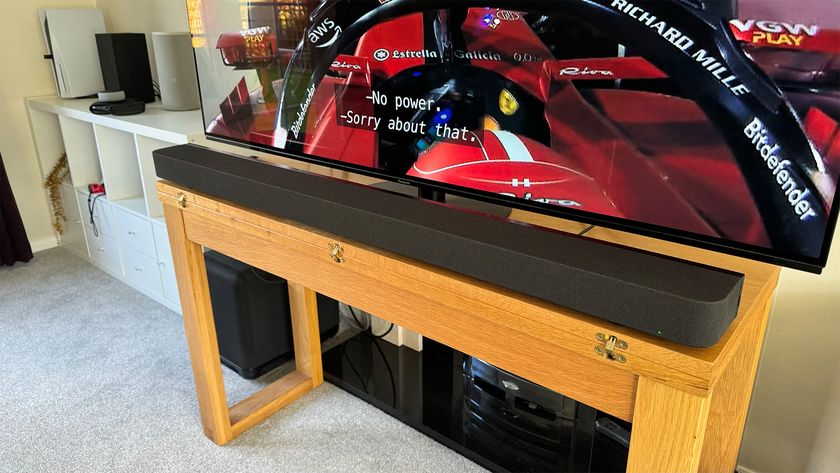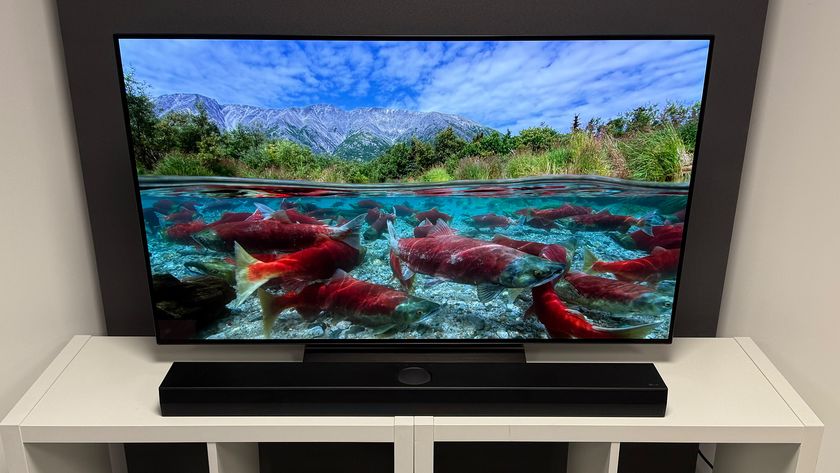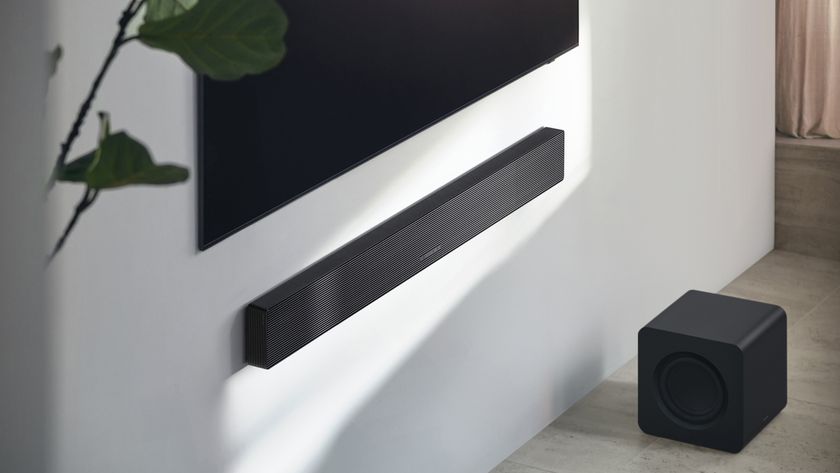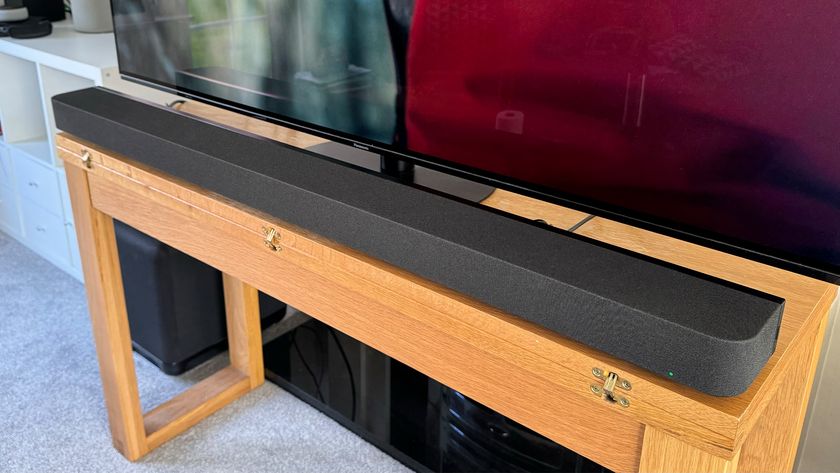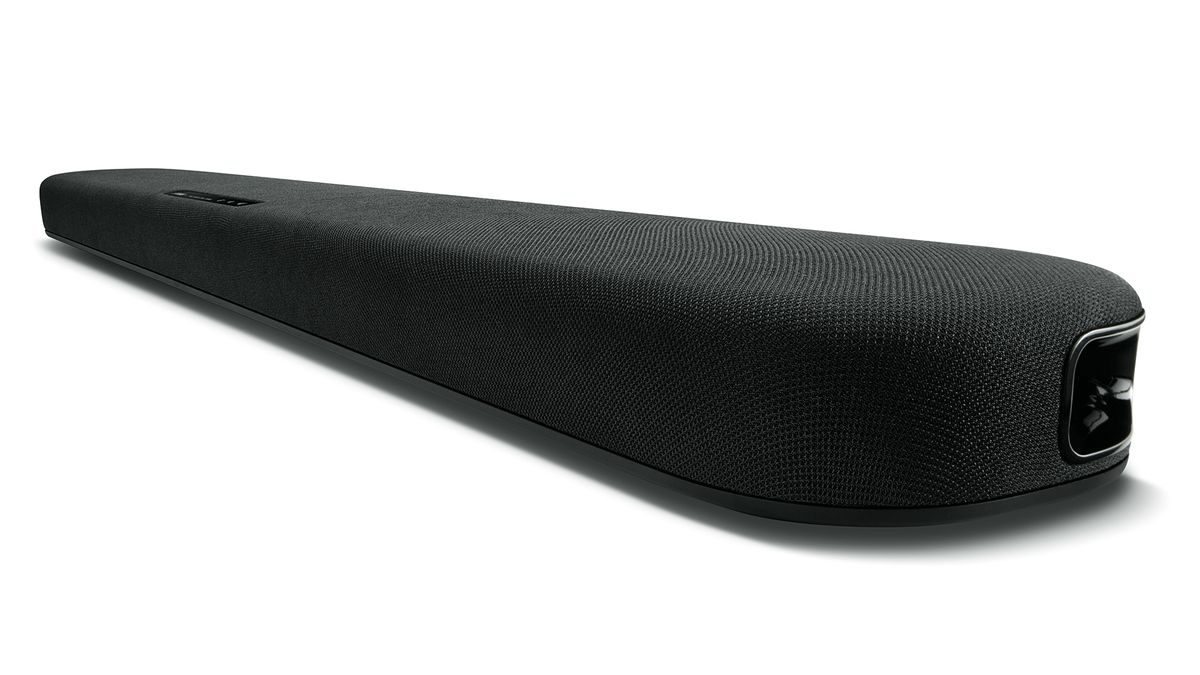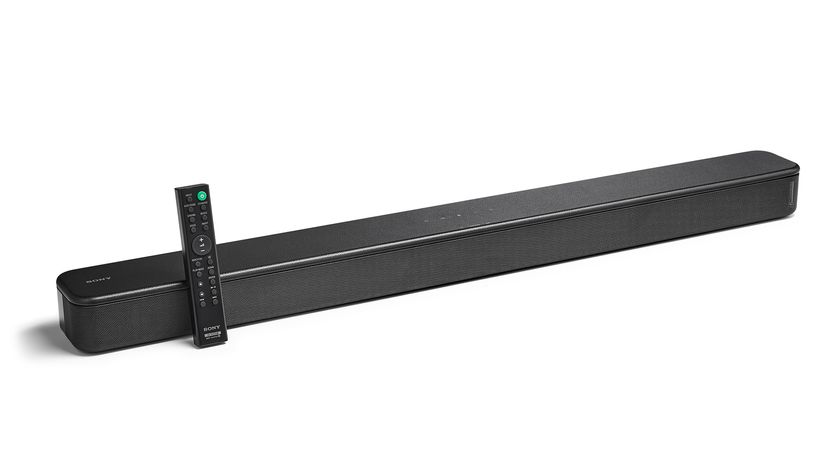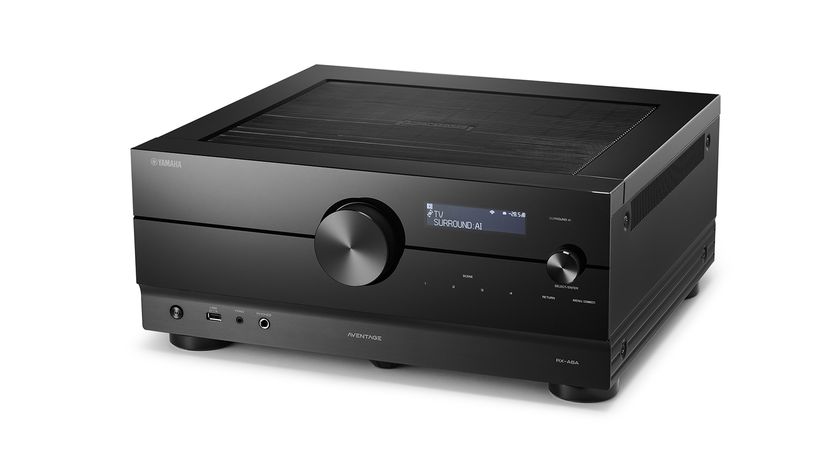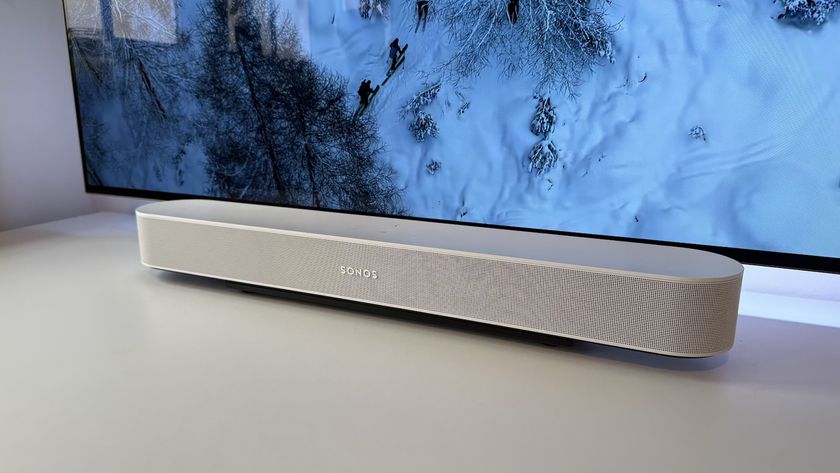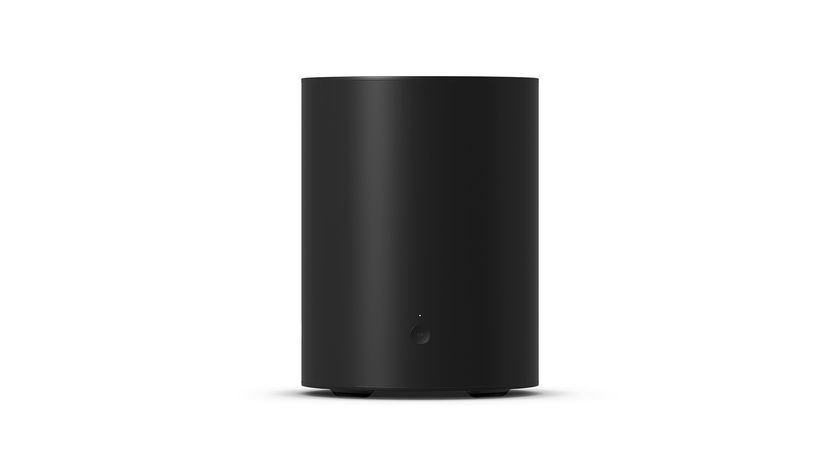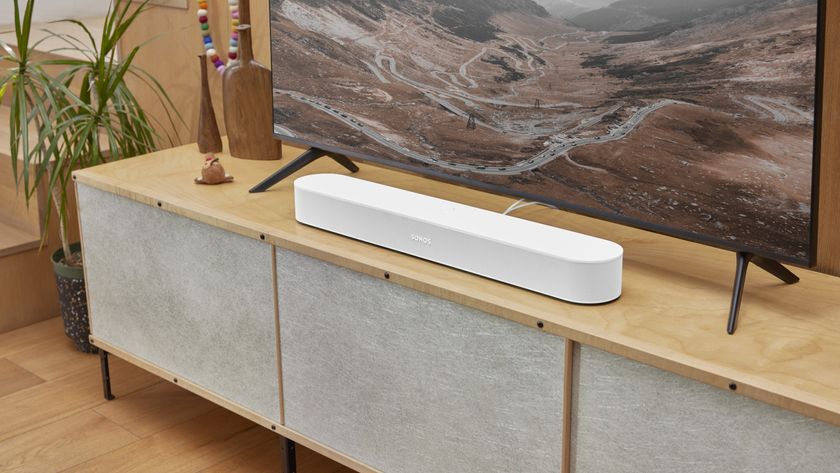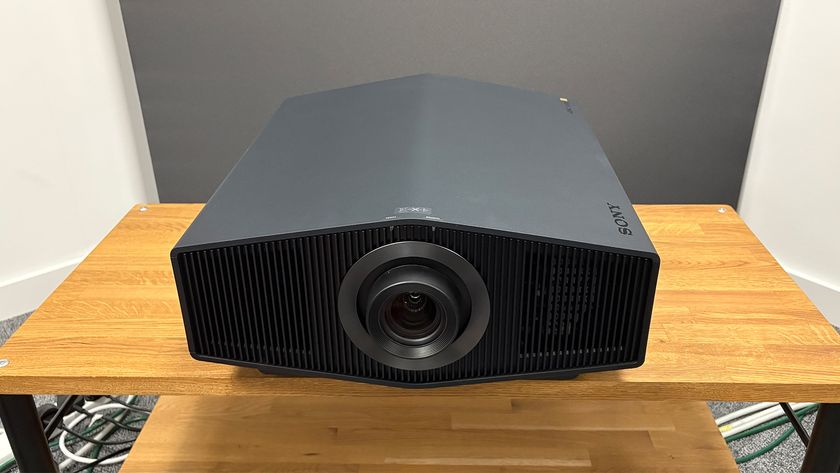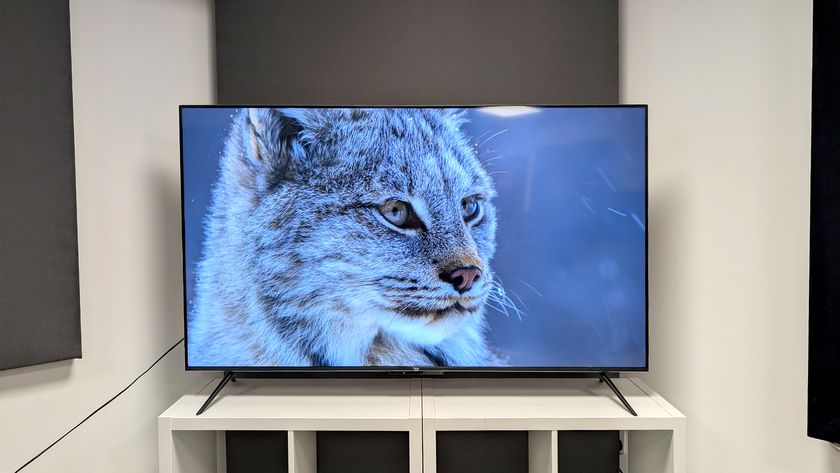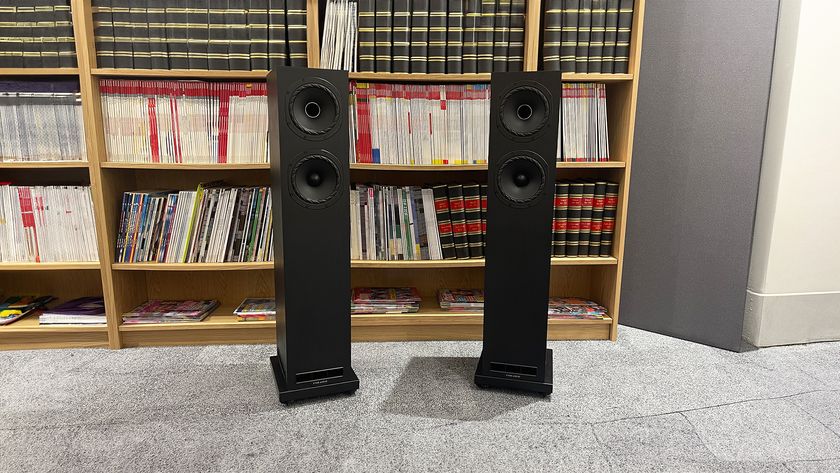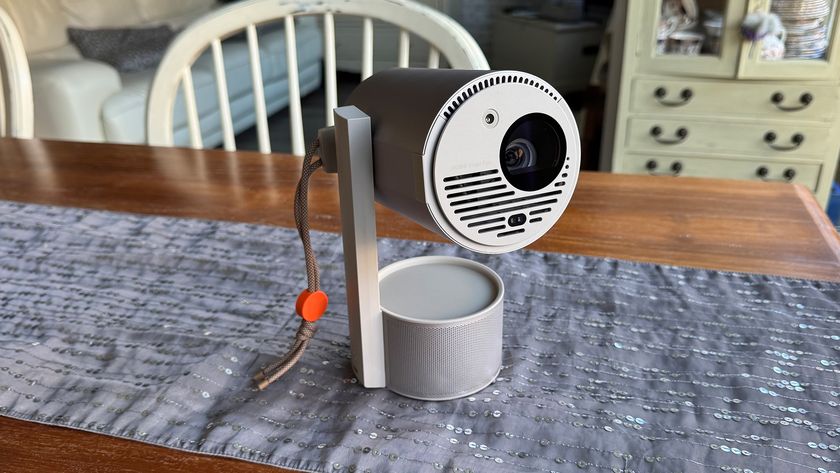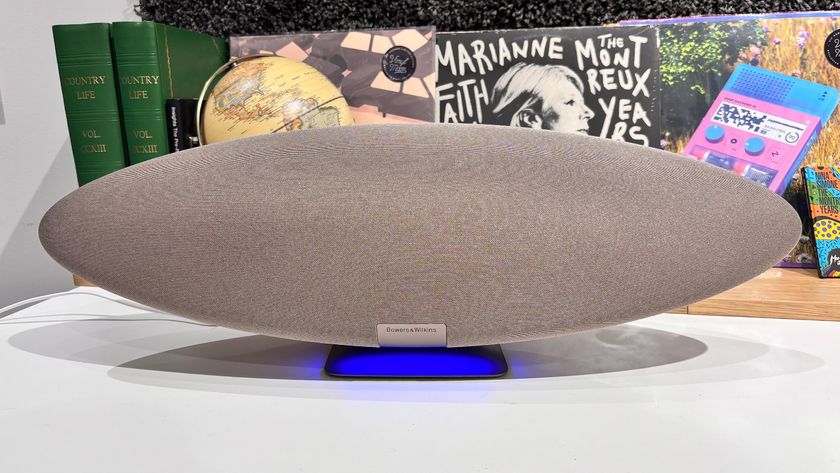What Hi-Fi? Verdict
The Yamaha SR-B20A isn’t perfect, but it does offer an impressive spread of sound for minimal outlay
Pros
- +
Clean and detailed
- +
Good spread of effects
- +
Decent bass
Cons
- -
Could be more expressive
- -
Timing not expert
Why you can trust What Hi-Fi?
Yamaha describes both of its latest ‘entry-level’ soundbars, of which the SR-B20A is the larger, as upgrades for your TV sound. That's something very much required these days when flat TV screens generally mean weedy built-in TV sound.
Unlike many rivals at this price, there is mercifully little pretence from Yamaha that the bars will deliver ‘surround’ sound, other than options labelled ‘3D Surround’ and some rather optimistic claims for the inclusion of DTS Virtual:X. These marketing extravagances aside, what’s promised is simply solid sound with which to enjoy your shiny new flatscreen.
What we particularly like about the SR-B20A on review here is that it aims to perform without the usual wireless subwoofer. This not only keeps the price down, it makes the whole package far more convenient to use.
The question is whether a long flat bar of a speaker like this can create solid enough sound without that subwoofer in support. And thankfully the answer here is a fairly resounding yes.
Build
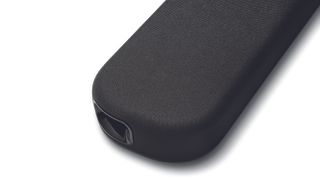
Despite the entry-level price, the Yamaha SR-B20A feels solidly built, and looks stylish too, with black fabric wrap and curving ends. It stretches to 91cm wide, which makes it a good match for 55-inch TVs but won’t prevent its use with either smaller or larger TVs.
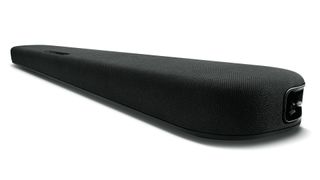
Power 120W
Outputs HDMI out (TV ARC)
Inputs 2x digital optical
4K passthrough No
Surround tech DTS Virtual:X
Dimensions (hwd) 5 x 91 x 13cm
Weight 3.2kg
Among the literature in the box is a mounting template that shows the soundbar can be stuck flat to the wall with the supplied foam spacers and a couple of sturdily fixed screws.
If you hang it on the wall, the controls, the indicator lights and most of the drivers usefully face the listener. You can always bench it in front of your TV instead, in which case the controls and lights are less usefully hidden.
The SR-B20A is a stereo soundbar, with six drivers in all. Four of these fire upwards if the unit is benched (forward if on the wall) – according to the specs these are 55mm mid-range units near each end and 75mm bass drivers halfway from each end to the centre, augmented with side-firing ports in the curves of the bar.
The quoted power ratings also suggest that the woofers are running in a dual-mono configuration rather than stereo, which Yamaha confirms. Finally, there are two 25mm tweeters on the front edge (benched) or firing down (wall-mounted); no amount of torchlight could reveal their location through the grille fabric.
Features
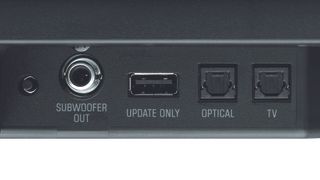
The bar can get sound from your TV in two (or potentially three) ways. The best option is an HDMI cable from the bar to an ARC-equipped HDMI socket on your TV, assuming it has one. If it doesn’t, or if you don’t wish to give up one of the HDMI sockets on your TV, the next best option is an optical digital connection, for which a cable comes in the box; there is no HDMI cable included.
There is no analogue mini-jack fall-back input here, though one does feature on the smaller SR-C20A (£229, $180, AU$299), and there’s no networking of any kind. There is Bluetooth with support for both SBC and AAC codecs, primarily intended for music streaming from a smart device, although TVs that can output audio via Bluetooth could also send their audio to the bar in this way (at the peril of potential transmission delay, depending on the system).
There are a couple of other connections, besides the mains cable – a second optical input for any suitable device, and a coaxial digital output.
Given that adding a separate subwoofer of quality will more than double the price, you’d do better to buy one in a package if you’re after that bottom octave of movie-style bass: Yamaha has a number of such combos, but the SR-B20A does a good job without additional support.
Sound
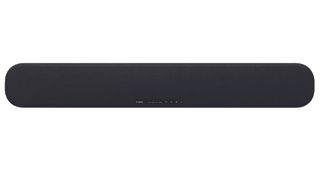
Despite its slim dimensions, the SR-B20A carries that welcoming full Yamaha tone. It’s close to its smaller sibling in terms of character, only the scale here is predictably greater.
The balance is good, too; it is easy for manufacturers to roll off a lot of top-end at this entry-level price point, to avoid anything too harsh, but the SR-B20A is happy to go high into the high frequencies with confidence.
Those built-in bass units get through a fair bit of work as well. You can dial in as much or as little as you like – you might want to tweak a bit if your TV rack is less than robust, to avoid any flabbiness – but with good solid support this is a weighty performance not short of presence. It doesn’t quite rumble like a dedicated subwoofer, but that rarely equates to great sound in an all-in-one soundbar anyway.
More impressive, though, is how the SR-B20A is able to spread effects. This is a long soundbar, and it makes good use of size. While you aren’t going to get anything like 3D sound in reality, this Yamaha is skilled enough to place sounds either side of the listening position in a manner you certainly wouldn’t regularly associate with this kind of price tag.
However, you lose a bit of focus with the soundbar firing upwards at the TV screen, which leads us to consider whether the SR-B20A is actually more suited to wall mounting.
That slight lack of precision is present in the SR-B20A’s dynamic and rhythmic performance, too. Large-scale dynamic shifts are presented well, but we end up wishing there was a little more in the way of expression on offer. Music playback also reveals this Yamaha isn’t quite the last word on timing, but again we’re far off calling it a poor performance.
Verdict
It’s difficult to know what to expect when approaching an entry-level product such as the Yamaha SR-B20A, but it’s safe to say on this occasion any expectations have been met.
This is a big-sounding soundbar that makes full use of its size. It might be best suited to wall mounting, but it’s pretty difficult to make it sound bad.
SCORES
- Sound 4
- Features 5
- Build 5
MORE:
Read our guide to the best soundbars
Read our Sonos Beam review
Read our JBL Bar 5.0 MultiBeam review
What Hi-Fi?, founded in 1976, is the world's leading independent guide to buying and owning hi-fi and home entertainment products. Our comprehensive tests help you buy the very best for your money, with our advice sections giving you step-by-step information on how to get even more from your music and movies. Everything is tested by our dedicated team of in-house reviewers in our custom-built test rooms in London, Reading and Bath. Our coveted five-star rating and Awards are recognised all over the world as the ultimate seal of approval, so you can buy with absolute confidence.
